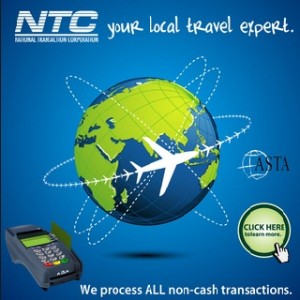January 11th, 2016 by Elma Jane
Chase Commerce Solutions, the global payment processing and merchant acquiring business of JPMorgan Chase & Co., sold its entire portfolio of Independent Sales Organization (ISO) accounts and associated contracts.
Financial terms of the deal were not disclosed.
Chase has been decreasing the number of merchant relationships it supports through traditional ISOs and increasing the number of direct acquiring relationships it has with merchants since it formed Chase Merchant Services, a partnership with Visa that began 2013.
During that time it has focused more on e-commerce, reports said, though the biggest news for Chase Commerce Solutions recently was its agreement with Starbucks in November to take over processing of all its non-mobile payments.
Posted in Best Practices for Merchants Tagged with: Commerce Solutions, e-commerce, Independent Sales Organization, ISO, merchant, merchant services, Mobile Payments, payment processing, visa
June 5th, 2015 by Elma Jane

Traditionally, travel-related merchants have a difficult time obtaining merchant accounts. National Transaction Corporation (NTC) is a full service merchant account provider with extensive experience in the travel arena and related markets, servicing thousands of travel-related merchant accounts by specializing in non-cash electronic transactions. Our services include processing credit card transactions, gift card transactions, and e-commerce transactions, among others. We offer a full line of products including credit card terminals, cellular devices, supplies, and accessories for each model sold. We offer aggressive rates and pricing for mail/telephone order, retail/restaurant, wireless, and online transactions while specializing in the travel and high volume sectors of merchant processing, and we are proud to be the preferred merchant provider for ASTA.
NTC is dedicated to providing the highest caliber of service and solutions in the merchant processing industry. We actually answer the phone when you need assistance! NTC has a team of dedicated employees providing personalized service to each account holder and are available directly through their toll free number, never hidden behind a menu system. Our excellent service truly separates us from everyone else in the industry. The principals of NTC have extensive experience in the processing arena for over 25 years, with experience in all facets of operation, including credit cards, credit initiation, credit investigation, loss prevention, deployment, and customer and terminal support. We employ internal sales associates as well as independent sales agents who offer many opportunities through their referral reward services and Independent Sales Organization (ISO) programs.
NTC’s online gateway allows for processing transactions, reviewing account history, and interacting with various shopping cart and accounting applications such as QuickBooks, Peachtree, and many other titles. Reservation software such as Trams are compatible and integrate well with all National Transaction merchant accounts. Whether you are a travel agency or an independent agent, we offer many solutions that cater to the travel industry and will increase your revenue with quicker deposits into your bank account.
Travel environments are unique in that your transactions are usually keyed; there is almost always a delayed delivery period, and large ticket transactions are not uncommon since one card holder may be paying for multiple tickets. They also tend to be seasonal, with peak season months generating an unusual spike in their “average” monthly volume, and charge-back’s pose a potential threat by travelers who are unable to complete their trip. Combine even a few of these factors together and you have cause for a reserve, or even account termination. National Transaction Corp specializes in understanding what makes your transactions unique, as a travel agent, and how they affect your merchant account.
The importance of customer service is something that is over looked when merchants compare the overall cost of monthly fees with their merchant account. That is, until the moment they need assistance with their account. Whether searching for missing deposits, having problems processing transactions, issuing refunds, processing voids, or questioning their billing statement, a merchant should always remember you get what you pay for. If you wonder why they can offer you no monthly fee, they are offering you no LIVE customer support. Customer support for them will come via means of email. You will wait hours for answers, and even days for a simple confirmation or general email, let alone a resolution.
National Transaction Corporation has over 17 years of dedication and experience in providing quality solutions in the credit card processing arena. From internet e-commerce applications to food stamp processing, from small start up businesses to fortune 500 companies, NTC has a complete product selection to customize a solution to grow with your business. We at NTC pride ourselves on being a full service, member service provider. It is our mission to provide the same dedication and service in maintaining your business as you experience in us earning your business. NTC will provide service after the sale. It is that service that sets us apart! For more information, contact NTC for world class service and solutions.
Contact National Transaction Corporation today at 888-996-2273 to see how we can help you with your travel merchant account, or visit us online at www.nationaltransaction.com for more information.
by Elizabeth Cody (Travel Research Online)
Posted in Best Practices for Merchants, Credit card Processing, e-commerce & m-commerce, Gift & Loyalty Card Processing, Merchant Account Services News Articles, Merchant Cash Advance, Travel Agency Agents Tagged with: ASTA, bank account, billing statement, credit card terminals, credit card transactions, credit cards, customer service, deposits, e-commerce, e-commerce transactions, electronic transactions, gift card transactions, Independent Sales Organization, ISO, merchant account provider, merchant accounts, merchants, service provider, travel, travel agency, travel agent, travel industry
November 18th, 2013 by Elma Jane
Big players are entering the merchant cash advance business and the industry’s smaller players are maturing. Meanwhile, the market is growing with the help of automated clearinghouse transactions.
The industry has caught the attention of high rollers who are transforming merchant cash advance into a mainstream option for funding small to midsize businesses.
In the past two years, venture capitalists and hedge funds have invested tens of millions of dollars in long-standing merchant cash advance firms and startups alike.
Meanwhile, big players such as PayPal and the card brands have launched their own programs to provide working capital to merchants.
The business has changed so much in the five years, it’s almost not the same business anymore, says a hybrid ISO and merchant cash advance company based in New York.
CEO of Capital Stack LLC, a merchant cash advance company in New York, has been monitoring the industry’s growth on his DailyFunder blog. He estimates that a year ago, there were about 50 merchant cash advance funders and about $1.5 billion in funding. This year, that number is north of 120, and the funding volume has doubled to $3 billion.
Counting mainstream funders such as Amazon and PayPal, which offer products that follow the cash advance model, the numbers are closer to $5 billion.
Until now, ISOs were using cash advances as an acquiring tool for credit card accounts. An estimate that of the 20 million to 25 million businesses in the U.S., about 5 million accept credit cards. When ACH opened up the remainder of those businesses for loans, the funding volume went off the charts. Now it’s going to grow 50-fold in a 10-year period, just because there are so many more businesses that are approvable.
The popularity of cash advance is good news for ISOs, who might have an easier time pitching the product to merchants because they already know about it and know to ask for it.
A number of factors have coincided to make merchant cash advances more attractive.
Previously, cash advances were associated with luring merchants into a high-rate source of cash. Funders could charge any rates they wanted because the industry was so unregulated. As the industry has matured, the more disciplined companies have survived, while the others have fallen by the wayside, and with the recession causing fewer banks to offer traditional loans, the market is wide open for alternative funders of all shapes and sizes to enter the fray.
The industry has also outgrown the one-size-fits-all pricing that once defined it. Before, all lenders set high prices. Now, companies rely on risk-based pricing, which means better clients get better deals, and ISOs can offer more competitive pricing. That changed the dynamics of the industry.
But the real change in merchant cash advance, members of the industry say, has been the widespread use of automated clearinghouse payment transfers. It used to be that merchant cash advance was available only to companies that accepted credit cards. Now with more businesses accepting payments online via ACH, there is another mechanism for collecting from merchants.
It took some time for people to accept people going into their bank account and debiting their account. Five or six years ago, no one would have allowed someone to do something like that.
Today, everybody’s fundable, as long as you have a bank account. Gone are the days when ISOs had to walk away from potentially big deals because the merchant didn’t accept credit cards, or didn’t have enough processing volume. ISOs and merchants now have more flexibility to walk into just about any business and offer financing. That’s why it’s mainstream.
Posted in Best Practices for Merchants, Financial Services, Merchant Cash Advance Tagged with: accept credit cards, accounts, ach, acquiring, Amazon, approvable, automated, clearinghouse, credit-card, funders, funding, high rate, high rollers, ISO, merchant cash advance, PayPal, traditional loans, transactions, unregulated, venture capitalist, working capital
October 29th, 2013 by Elma Jane
Three dimensions merchants must look for in a payment system PSP and ISO:
1. Ability to adapt and customize the solution.
2. Solutions that support broad range of payment methods.
3. Supports a full set of different channels and devices.
Difference between a PSP and ISO in the payments ecosystem? Online and Mobile Payments:
There are two types of merchant service providers and not all service providers are made equal, Processors and Resellers:
Resellers are known in the industry as Independent Sales Organizations (ISO’s) and/or Merchant Service Providers (MSP’s).
1) Resellers or ISOs – ISOs resell the products or services of one or multiple processors. They can also develop their own or aggregate other value added products and services. ISO’s range from a little sketchy to best in class providers.
2) Processors – Also known as Acquirers, processors are distinguished by their ability to actually process a transaction. To be a processor, a company must have the technical capability to receive transaction data from a merchant via a telephone line or the internet and then communicate with the appropriate financial institutions to approve or decline transactions. Processors must also be able to settle completed transactions through financial institutions in order to deposit funds into the merchant’s bank account.
Processors can be banks or non-banks. While processors do maintain a direct sales force of their own, they primarily work through ISOs to acquire and maintain their merchant base. A processor’s business model is really one of economies of scale. They’re volume shops. They essentially outsource the sales function to ISOs. The processing industry is highly concentrated with the top five processors maintaining over 70% of all transaction volume.
Types of ISOs:
1. Banks – Banks of all shapes and sizes are ISOs. Banks entered into the merchant services business because it was a natural fit with their product and service offerings. It’s a way to increase revenue per customer. Most, but not all banks, will private label the services so that it’s difficult to distinguish whether they are a processor or ISO. The benefit of working with a bank is that you can consolidate your financial services. The drawback is, the you usually get out of the box solutions and service.
2. Non-banks – These types of ISOs range from some of the most dynamic and capable providers to firms who don’t represent the industry very well.
Industry Dynamics – There are a few dynamics that make the industry landscape quite interesting. First, there are very barriers to entry due to the lack of certifications, licenses, and capital requirements. Secondly, there really is no active regulatory body that oversees and enforces acceptable practices. So naturally, with these two market conditions, merchants need to be mindful and thorough in selecting a provider.
Processors versus ISOs In comparing the two, ISOs offer all of the products and services that processors do (because they are reselling) but processors can’t always offer the same products and services as ISOs. This is because ISOs can resell for multiple processors and can either develop their own technologies or aggregate solutions from other providers. ISOs have largely been the most successful creators of value-added services. ISO’s also tend to be smaller, which usually (but not always) leads to better customer service.
Processors are usually a safer bet for newer merchants that are still learning about the industry. Most still maintain what consider less-than-upfront pricing practices, but with their services it is less common to hear about some of the more serious problems that merchants encounter when they deal with the wrong ISO. As for price, in most cases, there really is very little to no difference. I argue, and fully disclose my vested interest, that in nearly any situation a best in class, non-bank ISO can provide more value than a processor.
Posted in Best Practices for Merchants, Credit card Processing, Electronic Payments, Financial Services, Mail Order Telephone Order, Merchant Services Account, Visa MasterCard American Express Tagged with: account, acquirers, aggregate, approve or decline, bank, best in class, channels, customize, data, deposit, devices, financial, independent sales organizations, internet, ISO, merchant service providers, Merchant's, mobile, msp, non-banks, online, payment methods, payment system, payments, processors, psp, resellers, solution, telephone, transaction, value added
October 14th, 2013 by Elma Jane
First what is a Merchant Account? It is a type of bank account that allows businesses to accept payments by payment cards, typically debit or credit cards. A merchant account is established under an agreement between an acceptor and a merchant acquiring bank for the settlement of payment card transactions. In some cases a payment processor, independent sales organization (ISO), or member service provider (MSP) is also a party to the merchant agreement. Whether a merchant enters into a merchant agreement directly with an acquiring bank or through an aggregator such as PayPal, the agreement contractually binds the merchant to obey the operating regulations established by the card associations.
Merchant Account comes in 2 Basic Types – Aggregated Accounts and Dedicated Accounts.
Aggregated Merchant Account – such as those provide by PayPal that use a single merchant account to provide credit card processing for an entire portfolio of companies.
Dedicated Merchant Account – are provisioned specifically for your business.
Each has its Advantages and Disadvantages.
4 Key Points to Consider when deciding which type is the most advantageous for your small business.
1. Creditworthiness: To obtain a dedicated credit card processing merchant account your business will need to go through comprehensive underwriting. If you’re in a difficult to underwrite industry or if your business is very new and if it has a less than stellar credit history then an aggregated merchant account is the best choice. You still need to provide information about your business, underwriting for aggregated accounts is typically far less rigorous than for dedicated merchant accounts.
2. Funds Control: With an aggregated merchant account, transaction proceeds go to the service provider and are then deposited to your bank account at the provider’s discretion. There are no industry standards or rules that govern how an aggregated merchant account provider handles or disburses your money. The provider makes the rules, and can change them at will, so if you choose an aggregated merchant pay very close attention to the contract terms and any changes made to them. With a dedicated merchant account, transaction proceeds, less processing fees, are deposited directly into your business account. While the merchant account provider can correct errors, react to potential fraud and debit your account for customer “chargeback” claims. This must all be done based on industry-standard credit card processing rules.
3. Neighborhood: With an aggregated account, you’ll have no idea about the other companies processing transactions. If a good number of them engage in fraudulent activity, it is possible that the service provider’s processing account will be terminated and even honorable businesses like yours will lose credit card processing ability. If you do go with an aggregated account, it is very important to make sure that your provider is large enough to absorb fraud generated by a few bad apples.
If you’re using a small provider, try to get a list of the other business using the service and check them out to see if you want to live in the same neighborhood. With a dedicated merchant account the only company processing credit card transactions through it will be yours. You are in full control of keeping the account in good standing.
4. Speed: Getting a dedicated merchant account can take time. While there are some providers automating the process and providing same-day decisions. A typical application will take 48 hours to approve and additional time to integrate into a POS or electronic payment processing environment. Signing up for a credit card processing under an aggregated account service provider can usually be done in minutes, and it often comes with an online system that can have you actively processing payment within the hour.
Offering your customers the option to pay with a credit card is a great way to enhance revenue for your small business. Customers want the points associated with rewards cards, and they want to manage their own cash flow by floating balances or financing their purchases. Allowing them to use credit cards accomplishes both. So, give the customers what they want. If you don’t accept credit cards yet, now is a great time to start. Having made that decision, the next step is to obtain a merchant account for credit card processing.
The actual credit card processing rates you’ll be charged are a critically important factor as well. But as with most things, you get what you pay for. So don’t choose a low rate without also considering how the provider you select will impact your overall business.
For Merchant Account Services Please call National Transaction at 888-996-2273 or visit our website www.nationaltransaction.com to know more about our services.
Posted in Credit card Processing, Merchant Services Account Tagged with: account, accounts, acquiring, aggregator, card, cards, chargeback, credit, debit, electronic, environment, fees, financing, fraud, ISO, merchant, msp, payment, PayPal, POS, Processing, provider, transaction, underwriting
August 15th, 2013 by Admin
The Federal Trade Commission recently charged a merchant account provider with violating federal law. The business sells credit card and debit card payment processing services to other small businesses in a business to business or B2B fashion. Allegedly the business made unsubstantiated and false claims to unwary businesses. Read more of this article »
Posted in Credit card Processing, Electronic Payments, Merchant Services Account, Visa MasterCard American Express Tagged with: b2b, credit card processing, FTC, ISO, merchant account, merchant services, MSD, terminal, transaction



